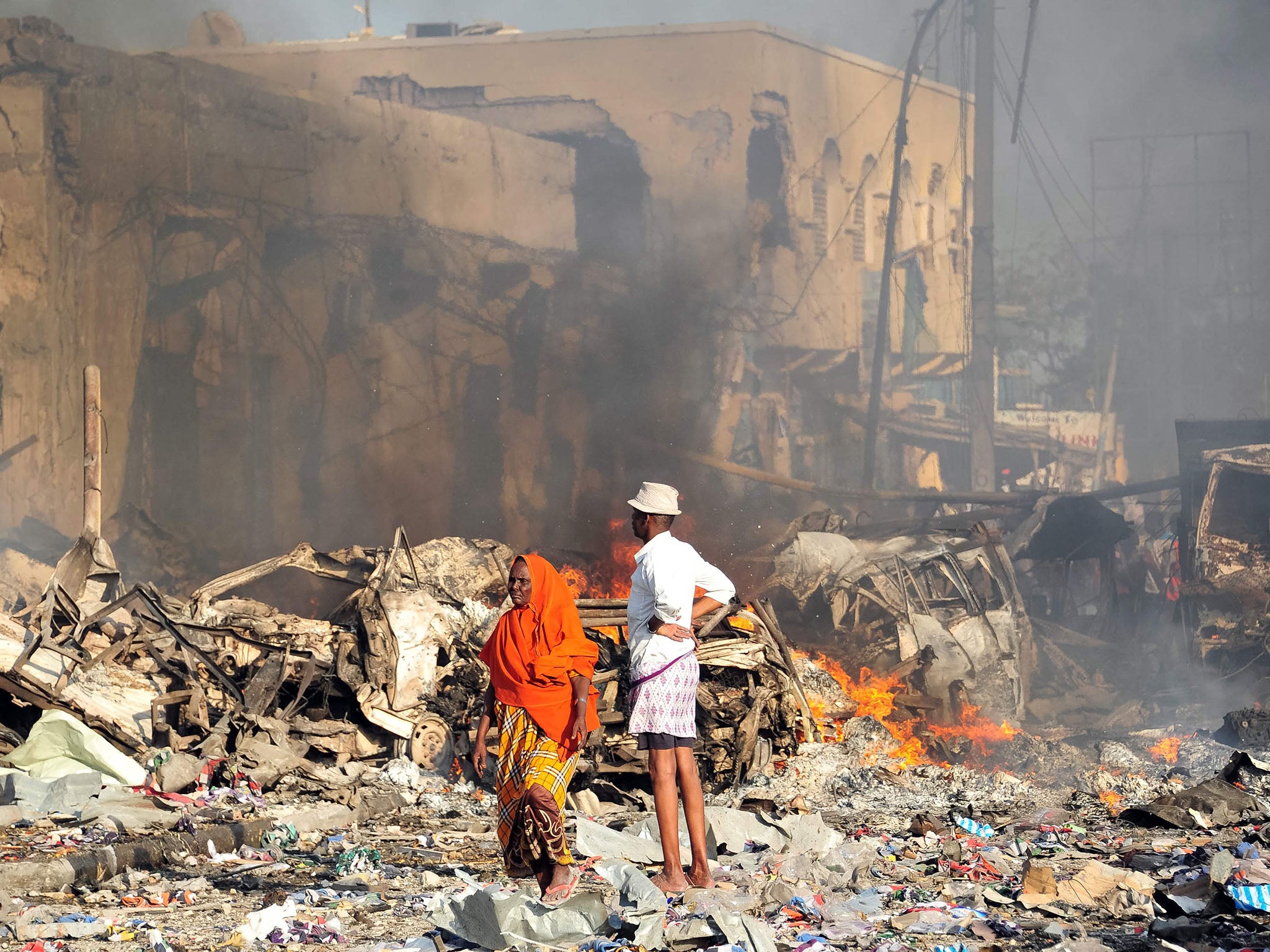Somalia truck bomb attack that killed more than 300 people in Mogadishu 'may be revenge for US-led operation'
Scores of people are still missing after the country’s deadliest bombing

Your support helps us to tell the story
From reproductive rights to climate change to Big Tech, The Independent is on the ground when the story is developing. Whether it's investigating the financials of Elon Musk's pro-Trump PAC or producing our latest documentary, 'The A Word', which shines a light on the American women fighting for reproductive rights, we know how important it is to parse out the facts from the messaging.
At such a critical moment in US history, we need reporters on the ground. Your donation allows us to keep sending journalists to speak to both sides of the story.
The Independent is trusted by Americans across the entire political spectrum. And unlike many other quality news outlets, we choose not to lock Americans out of our reporting and analysis with paywalls. We believe quality journalism should be available to everyone, paid for by those who can afford it.
Your support makes all the difference.The man behind one of the deadliest bombings in recent years was a former soldier whose hometown was raided by US special forces two months ago, officials in Somalia said.
More than 300 people were killed and hundreds more injured when two truck bombs exploded in the capital, Mogadishu.
Scores of people are still missing after the attack, the deadliest in the country’s history, and officials have said the death toll could still rise.
Somalian investigators told the Guardian the attack may have been motivated by revenge, following a joint US-Somali operation in August in which 10 civilians, including three children, were killed.
The raid, carried out in the town of Bariire – a stronghold of al-Shabaab – allegedly prompted local tribal elders to call for revenge against the Somali government and its allies.
The bomber who carried out last week’s attack was from the community targeted in the August raid.
Investigators have also established that both vehicles used in the Mogadishu bombing appear to have come from Bariire, officials said.
The blasts struck two busy areas in the heart of the city on Saturday 14 October, killing at least 320 people.
Police said a truck bomb exploded outside the Safari Hotel at the K5 intersection, an area home to government offices, restaurants and kiosks.
Two hours later, a separate blast hit the Medina district.
President Mohamed Abdullahi Mohamed declared three days of mourning in the aftermath of the bombing and joined thousands of people who donated blood to hospitals.
“I am appealing all Somali people to come forward and donate,” he said.
The attack is the deadliest since the Islamist militant group al-Shabaab began an insurgency in 2007.
Although no group has claimed responsibility, al-Shabaab – which is allied to al-Qaeda – carries out regular attacks in Mogadishu and other parts of Somalia.
This latest attack has cast scrutiny on US efforts to eliminate al-Shabaab.
Earlier this year, President Donald Trump approved the expansion of military operations against al-Shabaab, including air raids.
Join our commenting forum
Join thought-provoking conversations, follow other Independent readers and see their replies
Comments